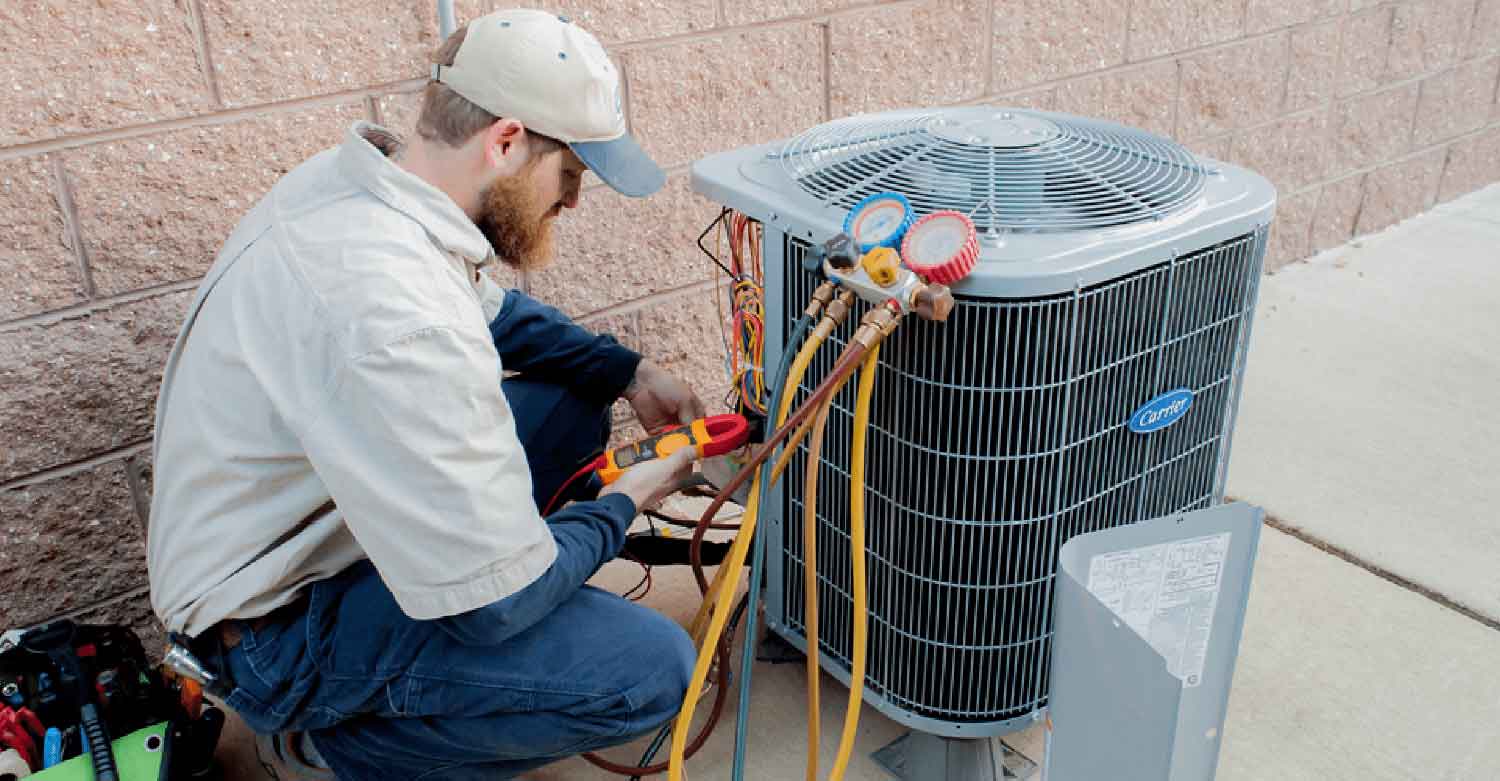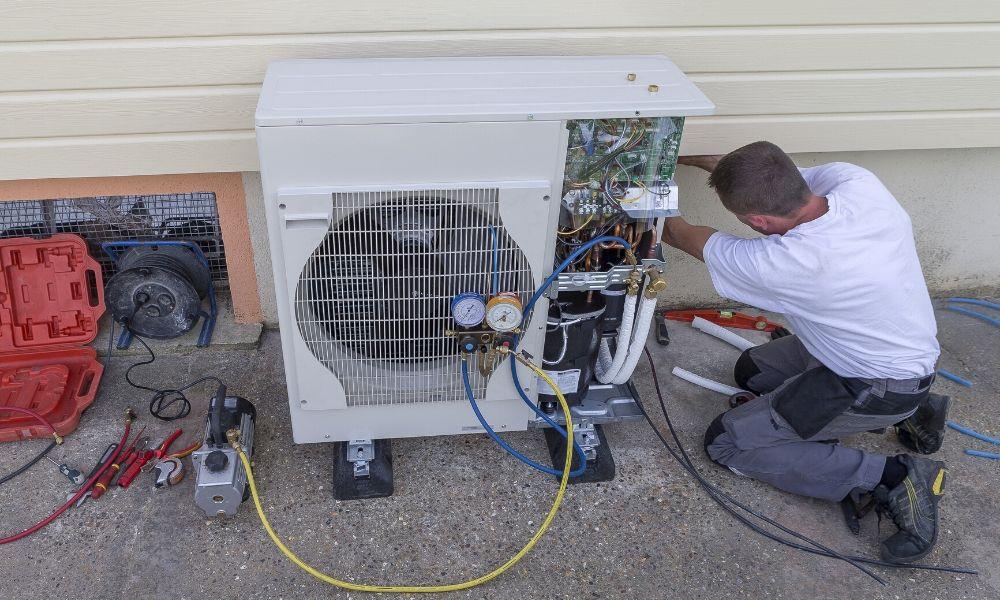Certain limitations do apply, please call for more details.
For Service Now, Call Us Right Now!
- HVAC Contractor
- HVAC Repair
- HVAC Installation
- Furnace Repair
- Furnace Installation
- Heat Pump Repair
- Heat Pump Installation
- Central Heating Repair
- Central Heating Installation
- Heating and Cooling Repair
- Heating and Cooling Installation
- Air Conditioner Repair
- Air Conditioning Installation
- Air Duct Cleaning Services
- Ductless Heating and AC Services
- Install AC
- Install Ducts and Vents
- Install Heating System
- Install Thermostat
- AC Maintenance
- Heating Maintenance
- HVAC Maintenance
- Repair AC
- Repair Ducts and Vents
- Repair Heating System
- Repair HVAC
- Repair Thermostat
- Clean Ducts and Vents
off



What to Look For in HVAC Contractors
When choosing an HVAC Contractor, it is important to know exactly what to look for. While some HVAC companies specialize in one sector, many others are able to work in all three. Before you hire a particular contractor, it is important to read reviews and ratings online. In addition, some states and provinces require their HVAC technicians have licenses and insurance. Using this information will help you choose the right contractor. However, it is also important to remember that there are many different types of HVAC contractors, so it is important to consider the kind of service you want.
The duties of an HVAC Contractor depend on the project at hand. Depending on your needs, an HVAC contractor may perform inspections, maintenance, and repair services. These services involve checking the state of different components, such as thermostats and fans. During the maintenance process, they will also check the electrical circuits and different components for faults. In repair services, the contractors will replace specific parts. Installation processes involve the hooking up of new HVAC units to ductwork and distribution systems.
If you're considering an HVAC Contractor, you'll need to know the requirements for becoming a licensed contractor. Some states require that you file a $25,000 surety bond with the DLI. Additionally, the state may have licensing requirements. In Mississippi, HVAC contractors must have a license from the Mississippi State Board of Contractors. They must pass a business management exam, law exam, and trade exam. Besides these requirements, HVAC Contractors will also need to prove they have the appropriate experience and insurance.
Before hiring an HVAC Contractor, it is important to understand how the system works. HVAC contractors need to understand how it operates, and how it interacts with other systems. It is important that they understand how to work with ductwork and how airflow flows through it. Some states require plumbing certification, too. Proper maintenance of HVAC systems requires an expert. In other words, an HVAC contractor should be licensed in every state. So, if you need an HVAC contractor, you should choose one with all the qualifications listed above.
While HVAC contractors may not have the best prices, they will still be able to provide high-quality work for your home. Be aware that the cheapest HVAC contractor is not always the best option. It's cheaper, but it's worth paying more for a higher quality service. When looking for an HVAC contractor, you should not only pay attention to how long the company has been in business. It's important to be responsive and ethical.
Choosing an HVAC Contractor is not a complicated process. After you've decided on the type of service you need, you can read reviews and see how satisfied previous customers are. If the contractor has good reviews, then it should be able to provide excellent service. In addition, the technician should be able to communicate any changes you may have with them. In addition, the company should be able to arrive within the time window that you have specified.
A licensed HVAC Contractor will have to meet certain requirements. In Nevada, an HVAC contractor must be licensed by the state. In Nevada, this means they must have four years of experience, although it is possible to get by with three years of education. A certified and experienced HVAC contractor will have been in the business for a decade, so they should have enough experience to provide quality service. If you are unsure about whether a particular HVAC contractor has the necessary certifications, contact the Better Business Bureau and get references.
An HVAC contractor should be able to perform the work properly. The work shouldn't be cheap, as it can be dangerous. An ethical contractor will invest in training and education. A certified professional will be able to install the best equipment for your home. This is not a quick fix, and a skilled technician can make mistakes. You should be able to trust the HVAC contractor you hire. If you have any doubts, contact an accredited and reputable HVAC contractor and learn more about the field.
HVAC contractors with NATE certifications are trained and experienced to do the work properly. The NATE certifications are the highest standards for an HVAC contractor. Regardless of your budget, the right one will not cost you more than their competitors. They should be fully licensed and insured, and their technicians should be able to provide quality work. The NATE certificate will help you choose a contractor that will meet your needs. In addition, it will ensure that they have the skills needed to perform the job correctly.
Key Benefits
Our approach has been simple. Provide a competitive price using qualified HVAC technicians with no hidden fees, backed by a 100% guarantee on workmanship. Our HVAC contractors are available now for any heating and cooling repairs or installation services for your home or business.
Professional Team
Factory Trained Technicians: We only employ factory trained technicians, they’re the best in the industry. Your work will be done right the first time.
Work done on Time
With over 25 years of experience in the industry, we boast all of the knowledge and expertise needed to handle even your most stubborn HVAC issues.
24/7 Emergency Service
We have technicians available for all heating and cooling jobs and we are available 24/7
Award Winning Firm
We are dedicated to the pursuit of excellence and the demonstration of high professional standards.
More Information
When Would You Use an HVAC Contractor?
When would you use an HVAC contractor? Choosing the cheapest bidder can be tempting, but it can also cause more problems in the long run. Unlike licensed and insured companies, lower-cost contractors may not have the necessary experience or knowledge to provide the best service. If you are not sure whether a contractor is reputable, read online reviews to find out. There are many ways to find a reliable and honest HVAC contractor. The best time to hire a HVAC contractor is before you need repairs. If you have an emergency, you can call a professional who can do emergency repairs and maintain your HVAC system. Alternatively, a licensed company can take care of routine maintenance. If you need a large, expensive HVAC system, it is best to hire a licensed contractor. This will ensure that your system will function properly and save you money in the long run. After an HVAC contractor installs your HVAC system, it's important to get a follow-up inspection. You can have your system checked as soon as the installation is complete. You should also check the company's license and permit. Hiring an unlicensed company can cost you your investment and safety. In addition to this, you don't want to hire an HVAC contractor who isn't licensed in your area.
What Does an HVAC Installers Do?
If you are interested in air conditioning and heating systems, then you should consider becoming an HVAC installer. The work of an HVAC installer is quite diverse. They not only install air conditioning systems, but also repair them. They also conduct routine maintenance, including checking electrical circuits and pipe joints for continuity. They may also provide installation services, such as replacing ductwork or adjusting thermostats. Many people are interested in this line of work, but what exactly does an HVAC installer do? HVAC installers do many things, but their primary responsibilities are in the installation of heating and air conditioning systems. They design and fabricate ductwork, wire indoor units, and perform start-ups for air conditioning systems. They also work with hazardous materials, such as refrigerants, and must have critical thinking skills. Most employers outline minimum physical requirements for candidates, which include being able to climb, balance, and crawl. The work of an HVAC installer is varied, but there are some common tasks that are expected of them. They must work with heating and cooling systems and must have mechanical aptitude. For instance, they must be able to climb and balance. They must also be physically fit to perform their duties safely. A high school education is not necessary for this career, though it is preferred. A trade school is not necessary. You can begin training on the job if you have a desire to become an HVAC installer.
What is the Difference Between HVAC Installer and Technician?
If you're curious about the differences between HVAC installers and technicians, keep reading. The difference is not so big - in fact, the two roles are almost identical. While an HVAC technician will be responsible for servicing and maintaining existing HVAC systems, an installation is more involved and will involve a unique plan. An installation can take several days and can require many hours of work. An installer's schedule is flexible and they may be available around the clock, but they won't be as busy as an HVAC technician. An HVAC technician is typically responsible for installing and assembling ductwork. They will cut sheet metal and connect it to the HVAC unit. They will also mount the ductwork within a building. Some technicians will also install registers or other accessories. They may also work with the installation of a heating system. A technician can do all of these jobs. Depending on the job, an installation may be a major project. An HVAC technician is a person who installs heating and cooling systems. They are responsible for the installation of outdoor units and coils. They are also responsible for repairing compressors and refrigerants. In addition to installing and maintaining equipment, they can perform preventative maintenance to ensure that the HVAC system is functioning properly. They must also be detail-oriented and able to communicate with their team members and customers.
What Should an HVAC Estimate Include?
An HVAC estimate is a crucial part of the process. It helps you decide whether to hire a contractor for your project. It should be written according to your specifications, including the size of your house, ceiling heights, and number of windows. A well-written estimate should include the costs of permits, equipment, and labor. It should also detail any additional requirements you have. A properly written estimate can distinguish your business from the competition and strengthen your relationship with your customers. A proper HVAC estimate will include all direct and indirect costs, as well as taxes and permits. In addition to the cost of the system itself, it should include the cost of all supplies, labor, and materials. The goal of an estimate is to fully detail all costs related to the project, as well as the performance criteria. You can perform an estimate that is semi-detailed or conceptual. In either case, there are certain steps that you must follow to achieve a successful result. The first step to creating a good estimate is to identify the scope of your project. Determine the goals of the project and how much you can spend on the various components. Consider the HVAC zoning and comfort requirements. Keep in mind that you can get government rebates and grants if you choose to make your project energy-efficient. Finally, make sure your HVAC contractor includes everything you need. And remember, no matter how much it costs, you can always change your mind and ask for a lower price!
Where are your service locations?
Award winning work
Expert, guaranteed workmanship. Warranty on Parts & Labor
We are accountable to each other and the community we have sworn to serve. We are dedicated to the pursuit of excellence and the demonstration of high professional standards.


